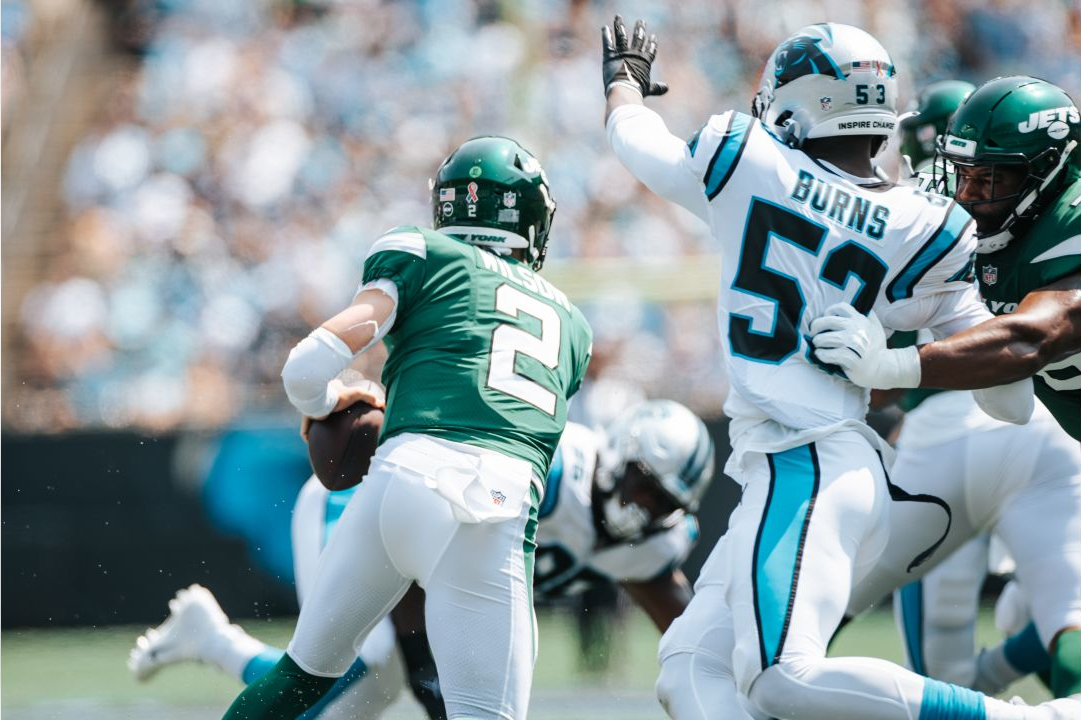A lot has happened to the Texans since the start of the 2021 offseason, and that’s just when it comes to the quarterback position. Not only is Deshaun Watson facing a lengthy absence from the field, but with Tyrod Taylor’s injury in the Texans’ loss to the Browns the Texans are now facing the prospect of starting rookie Davis Mills at quarterback against the Panthers on Thursday night.
The Panthers have already had the pleasure of facing one rookie quarterback so far this season and, with the defense following that up with a strong performance against the Saints, they will certainly hope to give Davis Mills a memorable first NFL start. So, with that in mind, what can the Panthers do to make life as difficult as possible for Mills, and how does that match with what they have done defensively so far this season?
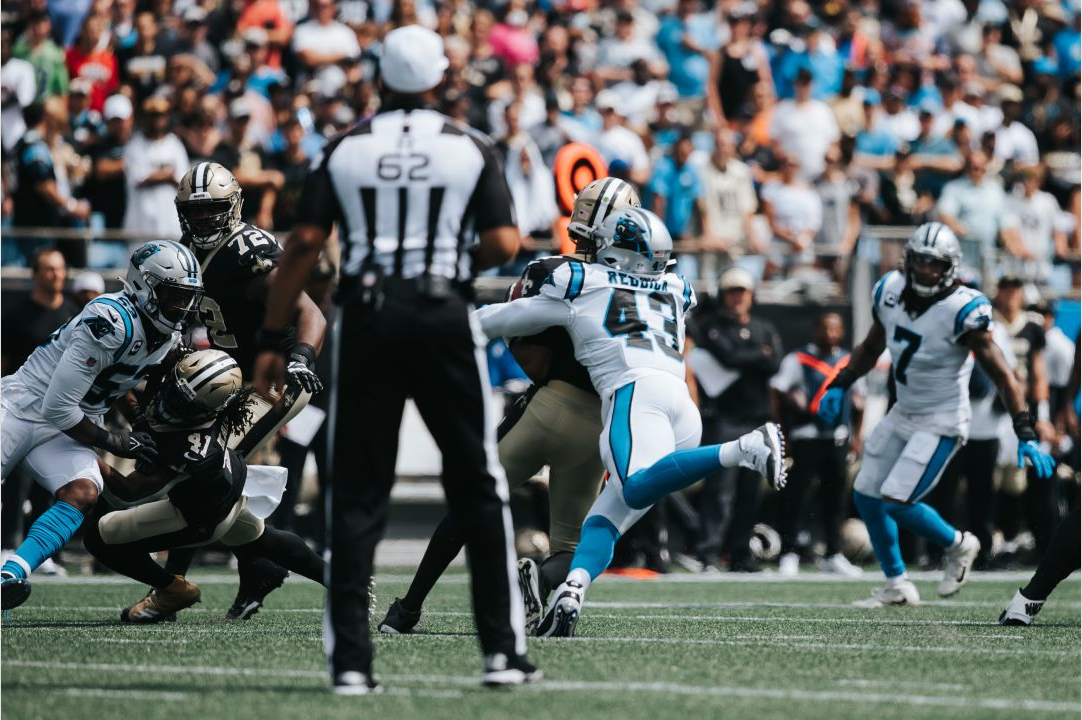
Photo Credit: Chanelle Smith-Walker/Carolina Panthers
Through two weeks the Panthers lead the nation in quarterback hits. Brian Burns has continued to dominate pass rushers, and guys like Morgan Fox and Haason Reddick have stepped up in a huge way to make it almost impossible for teams to focus in on just one player. This has certainly been borne out in terms of their ability to generate QB Hits through two weeks:

Importantly, Carolina’s ability to create pressure proves those quarterback hits are not the product of coverage, as they are near the top in ESPN’s Pass Rush Win Rate.
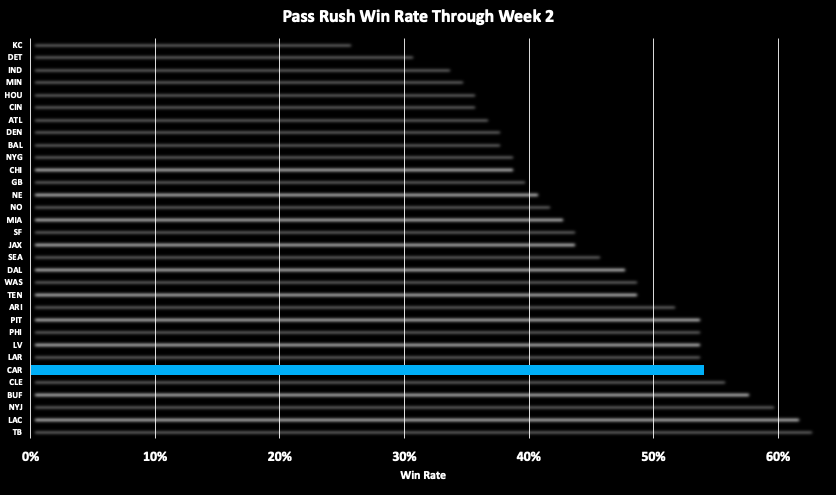
This is an indication that the Panthers are not only being successful in getting to the quarterback, but that the pressure they are getting is something that should be reproducible game-to-game, with the pressure coming from the play of their pass rushers rather than through coverage sacks of dumb luck.
With this being said, it is worth noting that the Texans’ offensive line has actually performed well through two weeks, allowing just seven QB Hits, though this does come with the caveat of having faced the Jaguars in week one. Though the Texans do have some notable offensive line personnel, most notably left tackle Laremy Tunsil, their pass blocking win rate through two weeks is an indication that the Panthers should have some reason for optimism about their ability to generate pressure on Thursday night.
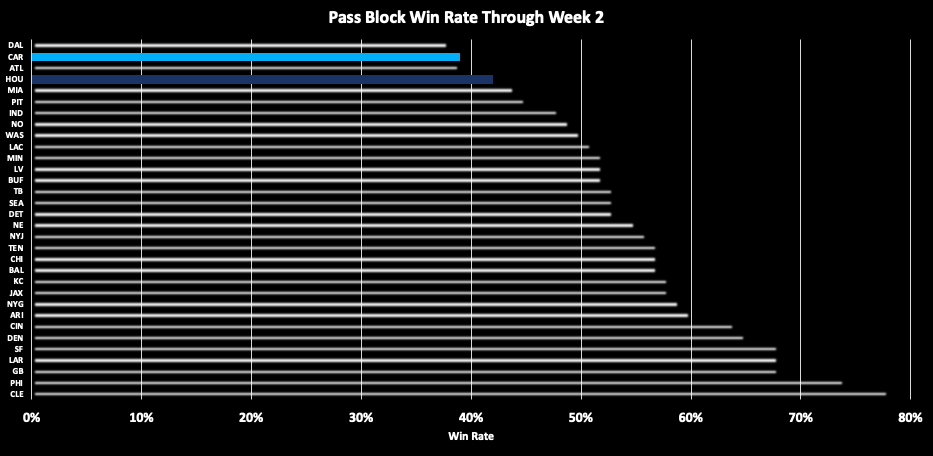
It is also notable from this that the Panthers haven’t exactly covered themselves in glory either when it comes to pass protection through two games but, given that they were at 20% following their narrow win over the Jets, the fact that that value has now increased to nearly 40% is an indication that things are at least trending in the right direction.
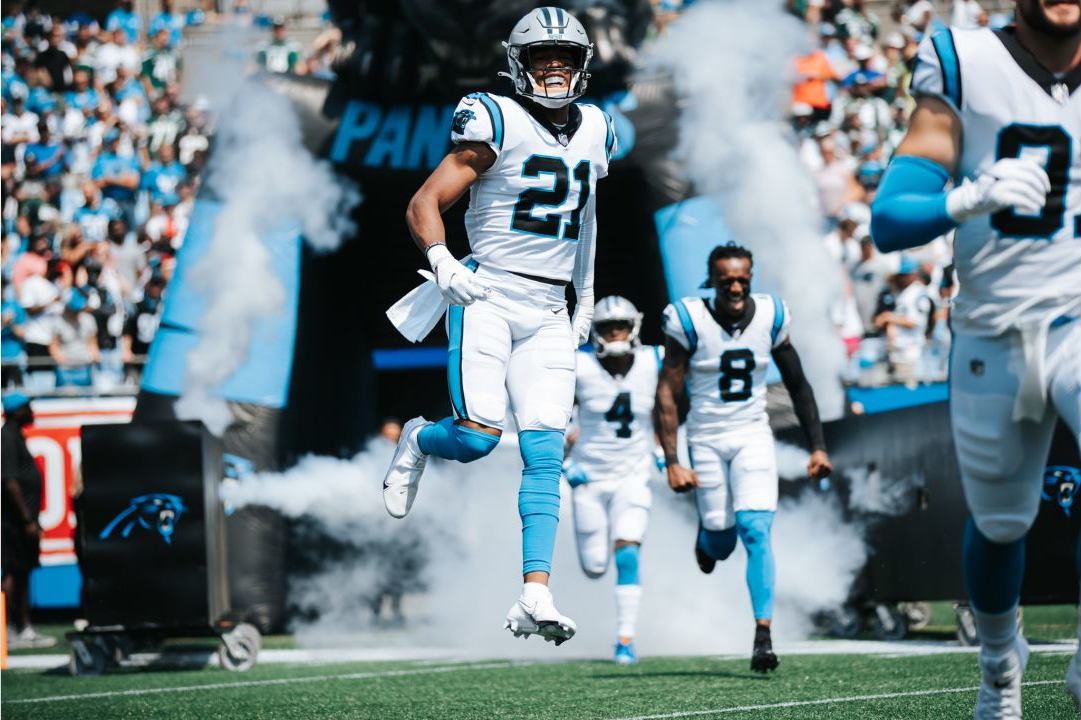
Photo Credit: Chanelle Smith-Walker/Carolina Panthers
The other part of getting pressure is, of course, coverage, and how the Texans approach the passing game, and how that might change with Davis Mills at quarterback, is worth considering.
With Tyrod Taylor at quarterback, the Texans rank towards the top of the league in terms of average depth of target, but with the Texans likely hoping that Mills can settle into some rhythm throws, especially early on, the Panthers’ secondary will need to show that they are able to force the quarterback to hold the ball and allow the Panthers’ pass rushers to have an impact.
Something that is likely to make a big impact one way or the other in this regard is whether the Texans are able to run the ball effectively, as if they are able to keep ahead of the chains on the ground then that will remove the need to push the ball down the field, and so allow Mills to get the ball out of his hands quickly.
Fortunately for the Panthers, they have also been one of the more effective run defenses in the NFL through two games.
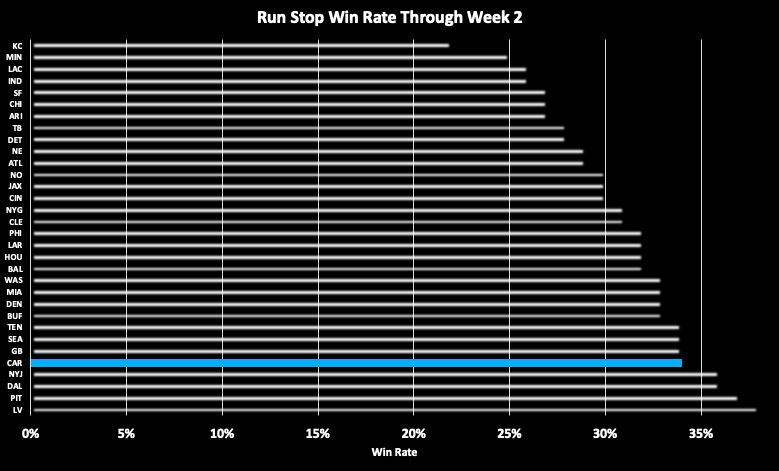
And though the Texans’ run blocking win rate hasn’t been awful through two games, there is little in the data to suggest that they will be able to move the ball consistently on the ground.
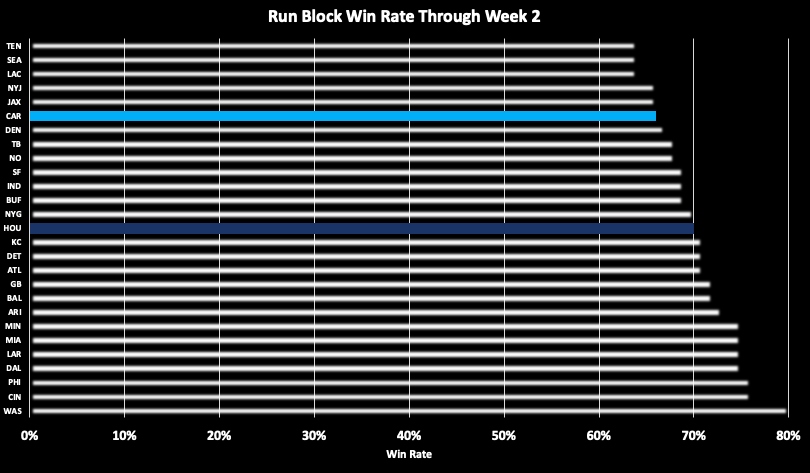
The Panthers’ run defense also has seen significant investment this offseason, most notably in the form of DaQuan Jones, and while there is hope that many of the young defensive tackles especially can continue to get even better, this unit isn’t the liability it has been over the past couple of seasons.
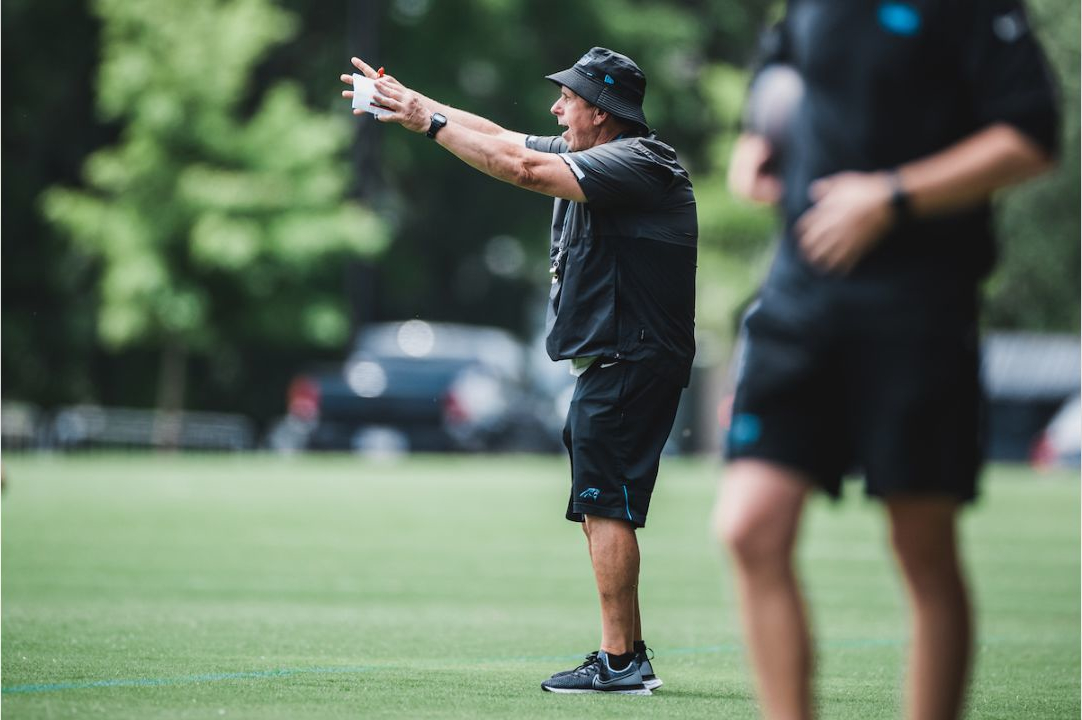
Photo Credit: Brandon Todd/Carolina Panthers
The Panthers’ biggest challenge in facing Davis Mills is the unknown and, given his short notice rise to the starting role, the Panthers will likely be scrabbling to prepare for the game. Phil Snow’s decision to stay at the stadium to work following the win against the Saints on Sunday might purely have been due to the short week, but the late change to the likely opposing quarterback is also a very plausible factor.
With that being said, as with almost every rookie quarterback, their best chance of success is if they make him face as many different looks as they can, force him to consistently adapt to exotic pressures and coverage and punish any indecision with sacks. If that indecision can become bad decisions as the pressure starts to get to him, so much the better.
It is still very early in the season to start trying to draw any huge conclusions from the sort of data presented here, but there are a few things that certainly appear to be true; the Panthers’ pass rush is very good, the Texans’ offensive line isn’t exceptional and rookie quarterbacks are largely ineffective when lying on their backs.
All they need to do now is back that up on the field.
(Top photo via Chanelle Smith-Walker/Carolina Panthers)

